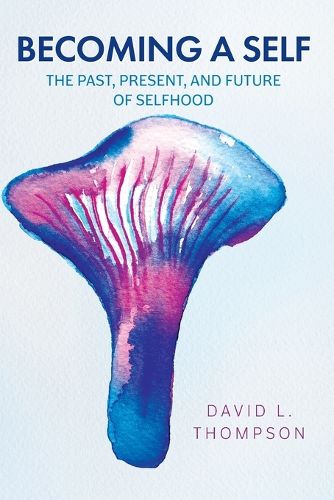Readings Newsletter
Become a Readings Member to make your shopping experience even easier.
Sign in or sign up for free!
You’re not far away from qualifying for FREE standard shipping within Australia
You’ve qualified for FREE standard shipping within Australia
The cart is loading…






What makes us persons? Is it our bodies, our minds, or our consciousness?
For centuries, philosophers have sought to answer these questions. While some believe humans are physical or biological in both mind and body, others claim we have an immaterial soul. Author and philosopher David L. Thompson proposes a new alternative.
Based on evolutionary biology and philosophy, Becoming a Self: The Past, Present, and Future of Selfhood explores the development of the human "self." Thompson theorizes that our selves formed through connections and commitments to others when early hominins lived in tribal groups and developed languages. As humans learned to fulfill these commitments, they not only cultivated relationships but also created their personal identities. Their habits of responsibility established their characters and therefore their reputations within their communities.
This naturalistic approach proposes that a self is defined by the history of its commitments to cultural and personal norms. While brain processes are required, the self is not some internal, private mind but primarily a role within its community.
As technology advances, selfhood could in the future be enabled by electronic, quantum, or other non-biological means. So if a self is formed through norms, could artificial intelligence evolve to have self-identity?
Thought-provoking and timely, Becoming a Self shows how investigating the past can help us understand our present status and illuminate our future.
$9.00 standard shipping within Australia
FREE standard shipping within Australia for orders over $100.00
Express & International shipping calculated at checkout
What makes us persons? Is it our bodies, our minds, or our consciousness?
For centuries, philosophers have sought to answer these questions. While some believe humans are physical or biological in both mind and body, others claim we have an immaterial soul. Author and philosopher David L. Thompson proposes a new alternative.
Based on evolutionary biology and philosophy, Becoming a Self: The Past, Present, and Future of Selfhood explores the development of the human "self." Thompson theorizes that our selves formed through connections and commitments to others when early hominins lived in tribal groups and developed languages. As humans learned to fulfill these commitments, they not only cultivated relationships but also created their personal identities. Their habits of responsibility established their characters and therefore their reputations within their communities.
This naturalistic approach proposes that a self is defined by the history of its commitments to cultural and personal norms. While brain processes are required, the self is not some internal, private mind but primarily a role within its community.
As technology advances, selfhood could in the future be enabled by electronic, quantum, or other non-biological means. So if a self is formed through norms, could artificial intelligence evolve to have self-identity?
Thought-provoking and timely, Becoming a Self shows how investigating the past can help us understand our present status and illuminate our future.